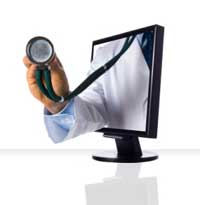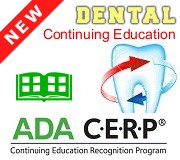
A five day workshop ( June 20-24, 2011 in San Diego, CA) has been created by NIH so that various behavioral science researchers, dental and medical community members, federal health officials, and other investigators can learn about mHealth, or mobile health, research.
Qualcomm, in association with the Office of Behavioral and Social Sciences Research (OBSSR), which is a part of NIH, is cosponsoring the Summer Institute. Unfortunately, the invitation on the web appears to exclude dentists, but the Hub was informed by Diane Friedl, labtemps division manager, that they are also invited to attend the event.
It is thought that mobile technologies may transform medical research by allowing healthcare providers to rapidly and accurately assess aspects behavior, the environment and biological processes. ‘Real time’ use of technology allows for a personalization of healthcare options by providing direct monitoring of patient progress which has the potential to improve care.
As stated in the NIH announcement “Through the use of mobile applications and technology, mHealth solutions hold the promise of reducing costs and errors, removing geographical and economic disparities and personalizing healthcare”. It may also reduce inefficiencies in the system.
With the use of these technologies, patients with chronic diseases can monitor and even manage their illnesses. Medications can be monitored remotely and changed easily which has the potential of reducing the frequency of hospital visits. In use currently are blood glucometers (devices used by diabetics to measure the amount of glucose in the blood), blood pressure monitors, pulse oximeters (which measure the amount of oxygen in a patient’s blood), weight scales, instruments for measuring medication adherence, and patient EMRs (electronic medical records).
Smart phones and other market devices can now present radiologic diagnostic imaging, ultrasound imaging displays, vital signs data, live cardiac rhythm information and other types of waveform data. Long-distance monitoring may be particularly utilitarian in developing countries where physicians need to collaborate long-distance with colleagues and community health workers evaluating patients in cities and villages far from hospitals.
It is reported that “NIH's mHealth Summer Institute will provide an overview of the engineering, behavioral science and clinical aspects of wireless research and will facilitate interaction between participants and experts from across the mHealth spectrum”. The current state of the science will be presented and there will be a focus on behavioral changes necessary to facilitate acceptance of the technology. The PR piece notes that “interdisciplinary teams of participants will develop potential mHealth research projects”. Registration is: http://obssr.od.nih.gov/training_and_education/mhealth/index.aspx.
However, it is not clear from the press release if registration is open to clinicians from other nations. And as noted, even though it does not appear from the registration material that dentists are invited, in fact they are encouraged to attend the workshop. See: http://obssr.od.nih.gov/training_and_education/mhealth_specifics.aspx










